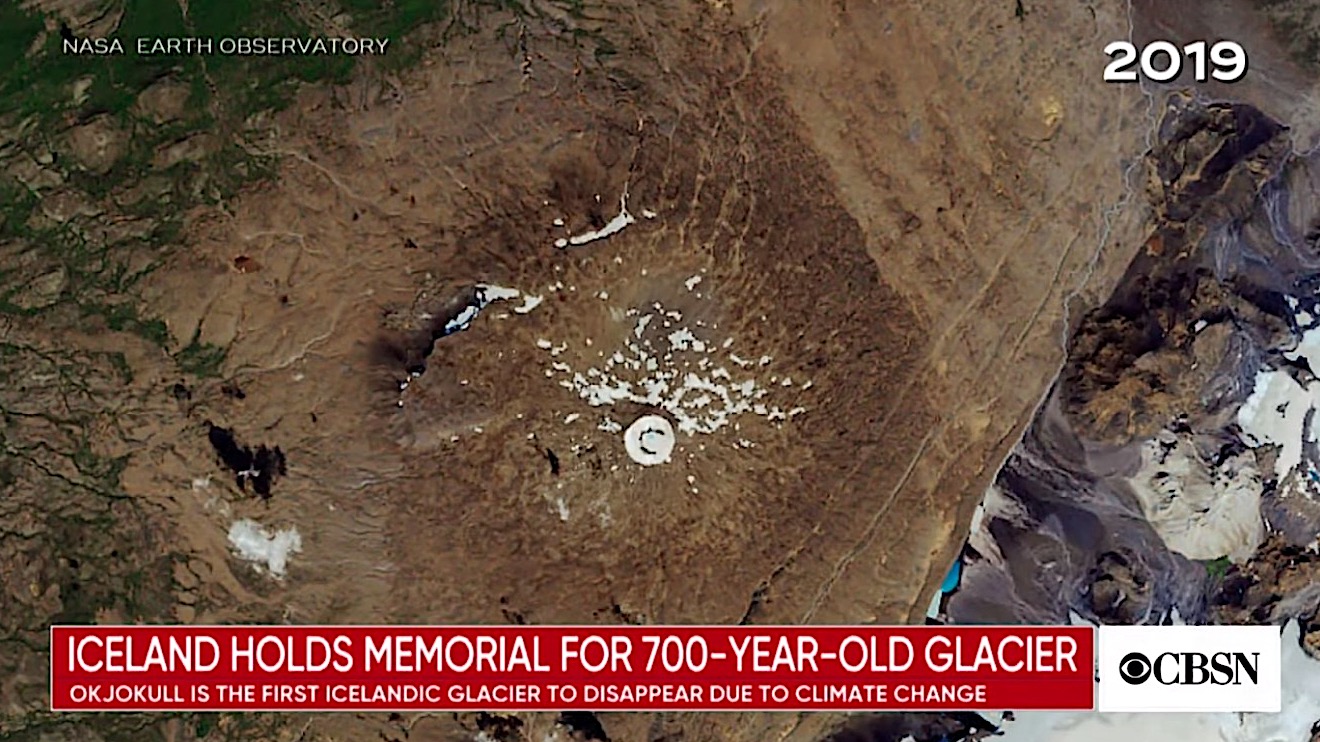Iceland mourns its 1st glacier lost to climate change, warns that all its ice sheets will be gone in 200 years


A free daily email with the biggest news stories of the day – and the best features from TheWeek.com
You are now subscribed
Your newsletter sign-up was successful
Iceland held a funeral Sunday for its first glacier lost to climate change. About 100 people hiked two hours to the top of a volcano for the ceremony, marked with poetry, moments of silence, and a plaque bearing a note for future humans. Icelandic geologist Oddur Sigurðsson, who actually pronounced the Okjokull glacier dead about a decade ago, formalized the extinction on Sunday, warning that Iceland won't have any more masses of ice in 200 years. Okjokull — now just Ok, without the Icelandic word for glacier — used to cover six square miles.
"We see the consequences of the climate crisis," Icelandic Prime Minister Katrín Jakobsdóttir said. "We have no time to lose." Former Irish president Mary Robinson agreed: "The symbolic death of a glacier is a warning to us, and we need action." The plaque the mourners installed reads: "This monument is to acknowledge that we know what is happening and what needs to be done. Only you know if we did it."
Not all glaciers die so peacefully, though, and Iceland isn't the only area affected. Saturday's NBC Nightly News showed some dramatic footage of Alaska's Spencer Glacier in its apparent death throes. Watch that below. Peter Weber
The Week
Escape your echo chamber. Get the facts behind the news, plus analysis from multiple perspectives.

Sign up for The Week's Free Newsletters
From our morning news briefing to a weekly Good News Newsletter, get the best of The Week delivered directly to your inbox.
From our morning news briefing to a weekly Good News Newsletter, get the best of The Week delivered directly to your inbox.

A free daily email with the biggest news stories of the day – and the best features from TheWeek.com
Peter has worked as a news and culture writer and editor at The Week since the site's launch in 2008. He covers politics, world affairs, religion and cultural currents. His journalism career began as a copy editor at a financial newswire and has included editorial positions at The New York Times Magazine, Facts on File, and Oregon State University.
